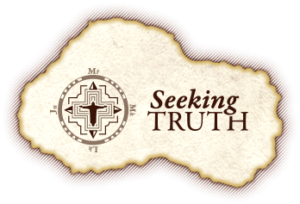Podcast: Play in new window | Download (Duration: 30:39 — 21.1MB) | Embed
Subscribe: Apple Podcasts | Spotify | Amazon Music | Android | Pandora | iHeartRadio | JioSaavn | Podchaser | Gaana | Podcast Index | Email | TuneIn | Deezer | Anghami | RSS | More
Episode 17 – John 8: I Am the Light part 1

The Feast of Tabernacles continues as we enter John 8. Also known as Sukkot or the Feast of Booths, Tabernacles is a joyous feast of endless light. On the climatic final day of the feast, Jesus declares that he is thee light of the world. Before continuing with the story of the woman caught in adultery, Sharon gives us a fascinating look into the feast of Tabernacles and raises the intriguing question: was Jesus actually born on this feast day? Working backward from that date, Jesus’ conception would have taken place at the time of Hanukah, which then leads Sharon to teach us about this feast day which celebrates the rededication of the Temple.
Around 330 BC, Alexander the Great of Greece conquered Israel along with much of the Mediterranean, and at his death, his kingdom was divided into four quadrants, one of which was the Seleucid Empire that ruled over Israel. In 167 BC as an act of retribution, Antiochus Epiphanes attacked Jerusalem, inflicting 80,000 casualties and captives. Under the threat of death, the Jews were forced to adopt Greek religious practices: a statue of Zeus was placed in the temple and the altar was desecrated by pagan sacrifices. In an uprising led by Judas Maccabees, the Seleucids were expelled and the temple rededicated.
The feast of Hanukah, also known as the Feast of Lights, commemorates this event. Was Jesus, the Light of the World, conceived on the Feast of Lights? Was Jesus, the Light of the World, born during the feast of endless light of Tabernacles? What evidence might support this idea? Theologically, it would make sense: Jesus, the light of the world conceived and born on feast days that celebrate light. Chronologically, it would make sense: depending on the year, Hanukah and Tabernacles are separated by 40 weeks. Yet, the Church celebrates the birth of Jesus on December 25th, approximately two months after Tabernacles. Why? Pope Benedict XVI explains.
For the first 500 years of the Church, March 25th was celebrated as the day of the cross and Easter was an immovable feast day. In addition, ancient traditions also held that March 25th was the day of the creation of the world, and March 28th, the day of the creation of the sun. The creation of the cosmos was seen as the pre-annunciation of Christ, which led to the theological conclusion that the dates of Jesus’ conception and passion were the same day: March 25th. Therefore, nine months later we celebrate Jesus’ birth on December 25th. The dates of Jesus conception, birth and passion have a cosmic significance.
Sharon then returns to John 9. The morning after the final day of the feast of Tabernacles, a woman caught in the act of adultery is brought before Jesus. Attempting to trap Jesus, the elders are actually convicted of their own sin by failing to uphold the judicial laws that they so rigidly observed. Sharon then unveils the meaning of Jesus’ writing in the dust. On the Day of Atonement, which is celebrated just prior to the Feast of Tabernacles, the High Priest reads Jeramiah 17:13: those who turn away from the Lord will be written in the dust. Convicted of their own sin and reminded of the familiar words of Jeremiah, the elders walk away in shame. Sharon goes further into the spiritual meaning of the adulterous women of John’s Gospel. The Samaritan woman of John 4 symbolizes the wayward northern tribes and the woman caught in adultery in John 8 represents the southern tribes.
Jesus, the light of the world, the living water, comes to unite the separated tribes of Israel and the entire world in preparation for the final cosmic battle against Satan, the father of lies and a murderer from the beginning.
Sharon Doran serves as the teaching director of “Seeking Truth.” An experienced Bible Study teacher, Sharon has a passion for scripture that will motivate and challenge you to immerse yourself in God’s Word and apply His message to your everyday life.
For more in this series visit the Seeking Truth with Sharon Doran Discerning Hearts page
 “Seeking Truth” is an in-depth Catholic Bible Study, commissioned by the Archdiocese of Omaha in response to John Paul II’s call to the New Evangelization as well as Pope Benedict XVI’s exhortation for all Catholics to study scripture. To learn more go to www.seekingtruth.net
“Seeking Truth” is an in-depth Catholic Bible Study, commissioned by the Archdiocese of Omaha in response to John Paul II’s call to the New Evangelization as well as Pope Benedict XVI’s exhortation for all Catholics to study scripture. To learn more go to www.seekingtruth.net


